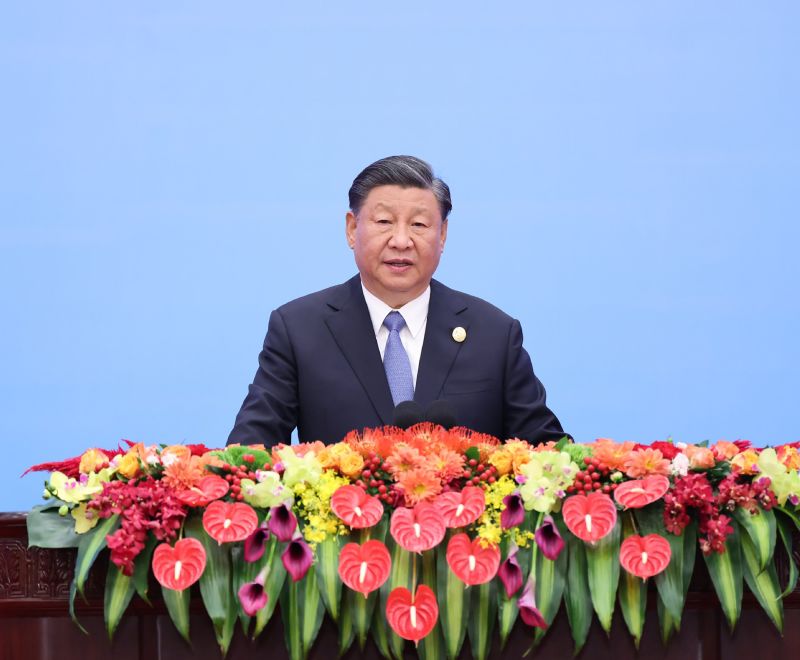
BRICS Economic Group: A Growing Global Alliance

The BRICS economic group, backed by China and Russia, has seen a surge in interest from nearly three dozen countries seeking to join. This expansion marks a significant shift in the global economic landscape and presents new opportunities for diplomatic and financial coordination.
The Expansion of BRICS
The BRICS economic group, backed by China and Russia, has recently gained attention as nearly three dozen countries have expressed their interest in joining the alliance. This surge in interest comes after the group expanded its membership for the first time in over a decade, signaling a significant shift in the global economic landscape.
Chinese leader Xi Jinping addresses leaders during the Third Belt and Road Forum in Beijing last month.
Thirty-four countries have submitted expressions of interest in joining the bloc of major emerging economies, according to South African Foreign Minister Naledi Pandor. The exact names of these nations have not been disclosed, but the growing interest reflects the increasing significance of the BRICS alliance on the world stage.
Russia, currently holding the rotating chairmanship of the group, is overseeing the application process. This comes after the group welcomed new members, including Iran, Saudi Arabia, the United Arab Emirates, Ethiopia, and Egypt at the start of the year. The expansion of membership is widely seen as a strategic move by China and Russia to counter the dominance of the United States in the international system.
Strategic Implications
The growing membership of the BRICS economic group holds strategic implications for global geopolitics. With China and Russia at the helm, the alliance has positioned itself as a formidable counterpart to the Group of Seven (G7) major developed economies. This expansion is seen as a significant win for China and Russia, as they seek to reshape the international system and strengthen their global influence amid increasing tensions with the United States and Western powers.
Chinese leader Xi Jinping has been a key advocate for the expansion of BRICS, promoting an alternative world order and forging closer partnerships with global players from Russia to the Middle East. This vision has garnered attention from countries worldwide, signaling a shift in diplomatic and economic alliances on the international stage.
The expansion of BRICS also presents an opportunity for Russia to counter its isolation and project itself as a major diplomatic player. With President Putin at the forefront of the group's leadership, Russia aims to assert its influence and engage in productive cooperation with countries within the BRICS orbit.
The Future of BRICS
The future of BRICS holds promise for increased diplomatic and financial coordination, as member states work towards reforming international institutions and challenging the dominance of the US dollar in global trade. The group's focus on using local currencies for payments and establishing alternative international payment platforms reflects a concerted effort to address perceived inequalities in the current global financial system.
As the upcoming BRICS summit approaches, the alliance anticipates productive engagement with member states and countries interested in collaborating with the organization. The expansion of BRICS signifies a shift in the balance of global economic power and presents new opportunities for countries to participate in a more diversified and inclusive international economic order.







